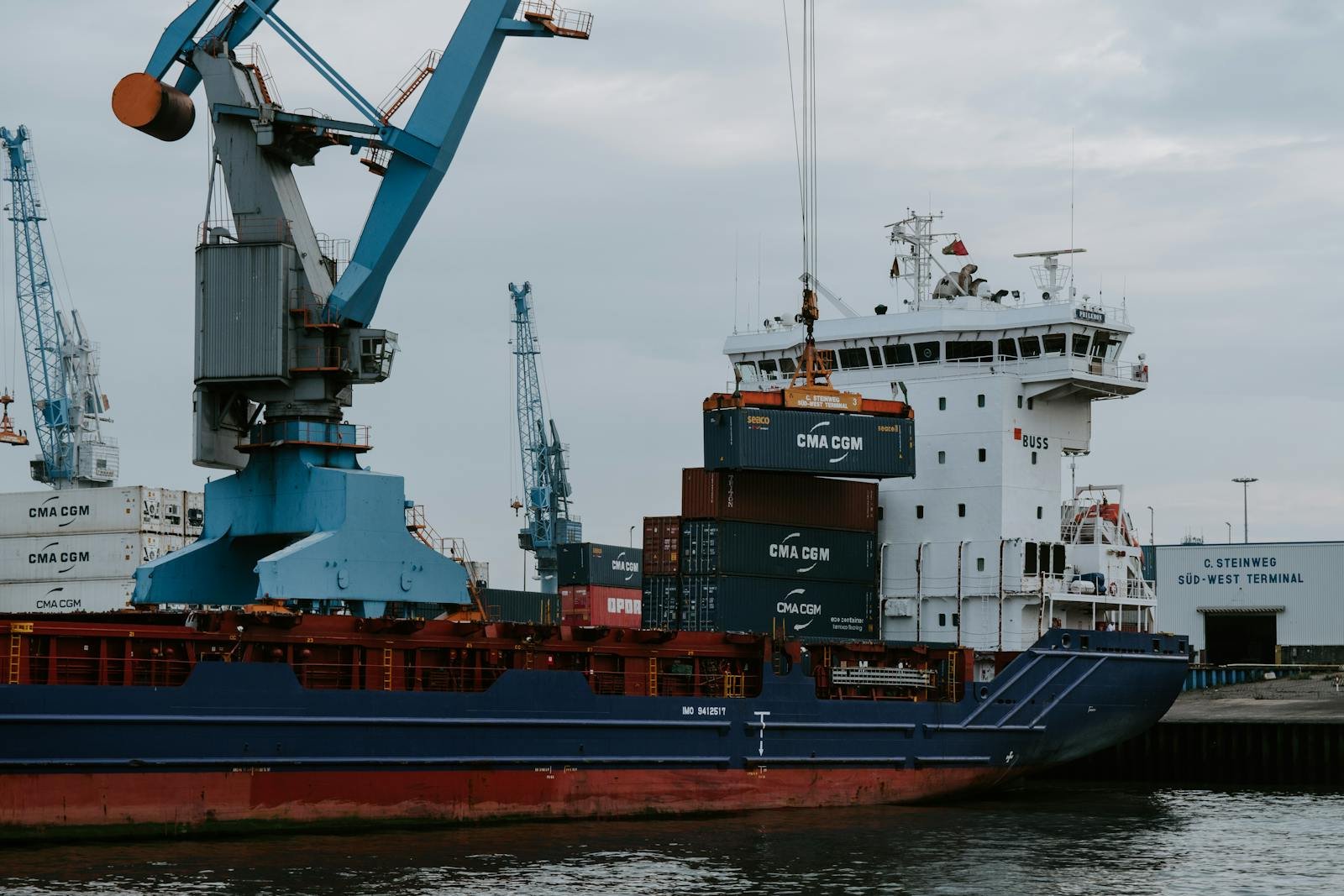Why Freight Insurance Matters More Than You Think
Imagine this: You’ve just secured a massive overseas order—your business is booming, and everything’s on track. Your goods are packed, shipped, and on their way to a customer across the globe. Then, you get the dreaded call: a storm damaged the cargo ship, and your shipment? Gone. Just like that.
That’s where freight insurance steps in.
International shipping is full of variables—weather delays, port mishaps, human error. Despite best efforts, cargo loss and damage aren’t uncommon. According to Allianz’s Safety and Shipping Review, over 3,000 shipping incidents occur annually, many involving cargo damage or loss. Freight insurance isn’t just a line item—it’s your financial safety net.
What Is Freight Insurance?
Freight insurance is a policy that protects the value of your goods while they’re in transit—whether by sea, air, or land. If your shipment is damaged, lost, or stolen, insurance can help you recoup some or all of your costs.
It differs from carrier liability, which only covers a fraction of the loss (often by weight, not value). Most shipping carriers are not responsible for the full value of your goods unless you’ve explicitly arranged insurance.
Key Benefits of Freight Insurance:
- Covers a broader range of risks than carrier liability.
- Compensates based on cargo value, not weight.
- Provides peace of mind in global transactions.
Types of Freight Insurance
Not all freight insurance is created equal. Here’s a breakdown of the most common types:
1. All-Risk Coverage
- Offers the most comprehensive protection.
- Covers everything from theft and water damage to natural disasters.
- Typically requires proper packaging and documentation.
2. Named Perils Coverage
- Only protects against specifically listed risks (e.g., fire, collision).
- Less expensive but also more limited.
3. Total Loss Insurance
- Only covers if the entire shipment is lost.
- Useful for high-risk or low-value bulk shipments.
Do You Really Need Freight Insurance?
Here’s a quick litmus test:
- Are you shipping internationally?
- Is your cargo valuable or time-sensitive?
- Would losing the shipment significantly impact your business?
If you answered yes to any of the above, freight insurance should be on your radar. Even if your shipping volume is low, the financial impact of a single incident can be devastating.
According to a report by the World Shipping Council, thousands of containers fall overboard each year. Accidents happen—sometimes in the blink of an eye.
Common Exclusions: What Freight Insurance Doesn’t Cover
Just like any insurance policy, freight insurance comes with exclusions. Understanding these upfront can prevent unpleasant surprises later.
Common Exclusions:
- Poorly packaged goods
- Inherent vice (e.g., food spoilage)
- War or civil unrest (unless specifically added)
- Delays that don’t cause physical damage
Always read the fine print or consult with a freight insurance broker before signing anything.
How to Choose the Right Freight Insurance Policy
Not sure where to start? Here are a few steps:
- Assess Your Risk
- Type of goods, origin/destination, transport method.
- Compare Policies
- Look at coverage scope, exclusions, deductibles, and premiums.
- Work with a Trusted Broker
- A licensed freight forwarder or insurance broker can help tailor a policy to your needs.
- Check the Insurer’s Reputation
- Ensure Proper Documentation
- Invoices, packing lists, and a bill of lading are usually required to file claims.
Claim Process: What to Expect
If the worst happens, here’s what the claims process typically looks like:
- Notify the Insurer ASAP
- Document the Damage
- Photos, inspection reports, etc.
- Submit Required Paperwork
- Await Claim Review
- Receive Compensation (if approved)
Claims can be rejected if documentation is incomplete, deadlines are missed, or the damage isn’t covered. Be thorough and timely.
Real-World Example: When Insurance Saved the Day
Let’s say you’re a boutique furniture exporter based in North Carolina. You ship a $50,000 order to a client in Belgium. Midway through the Atlantic, a fire breaks out on the cargo vessel. Most of the containers—including yours—are destroyed.
Because you had all-risk freight insurance, your provider processes your claim and reimburses you for the full declared value. Without insurance? You’d be at the mercy of limited carrier liability—and lucky to recoup a few thousand dollars.
Helpful Resources for International Shippers
- U.S. Customs and Border Protection
- International Chamber of Commerce Incoterms
- Federal Maritime Commission
- National Cargo Bureau
FAQs: Freight Insurance for International Shipping
Q1: Is freight insurance mandatory? No, it’s not legally required, but it’s highly recommended to avoid major financial loss.
Q2: How much does freight insurance cost? Typically 0.3% to 1% of the cargo’s value, depending on the coverage type and risk factors.
Q3: Does Incoterms affect who buys the insurance? Yes. For example, under CIF (Cost, Insurance, and Freight), the seller is responsible for insurance. Under EXW (Ex Works), the buyer is.
Q4: Can I insure goods already in transit? Some insurers allow this, but coverage may be limited. It’s best to insure before shipment begins.
Q5: Does freight insurance cover customs delays? Not typically, unless the delay causes physical damage to the goods.
Final Thoughts: Better Safe Than Sorry
In the unpredictable world of international shipping, freight insurance isn’t just another form to fill out—it’s a strategic decision. It’s about protecting your margins, your reputation, and your peace of mind.
So next time you’re prepping a shipment, ask yourself: what’s peace of mind worth to me?
Ready to safeguard your cargo? Talk to a licensed freight broker or insurance advisor and get the right coverage before your next big shipment sails.





